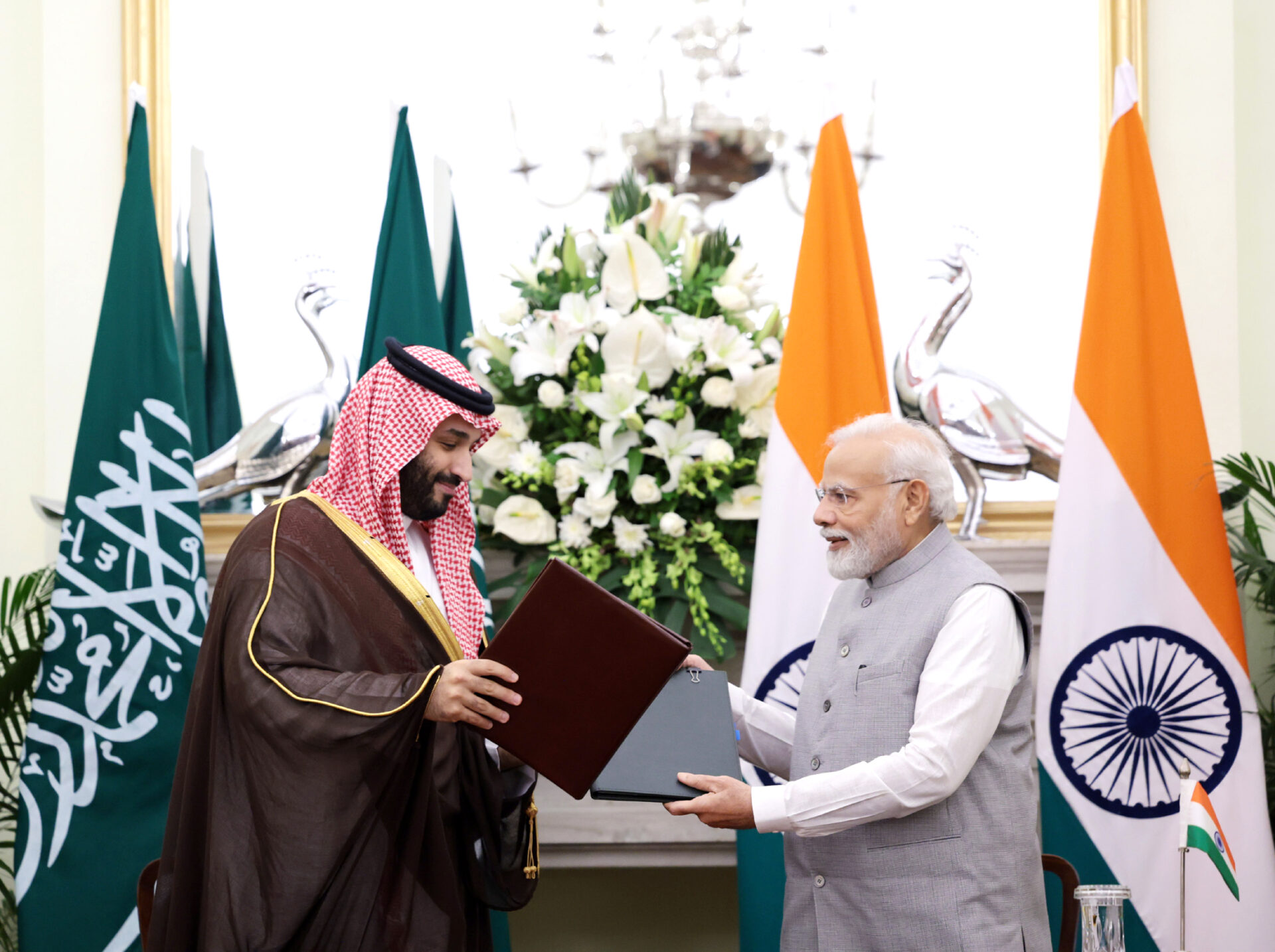The Saudi Crown Prince Mohammad bin Salman visited India last week for the G20 Leaders’ Summit. He stayed back to hold a much talked-about bilateral meeting with Prime Minister Narendra Modi. The two leaders held the First Leaders’ Summit of the Strategic Partnership, foundation of which was laid in 2019 during PM’s visit to Riyadh.
From the much-touted India-Middle East-Europe corridor to setting up a task force to channelise the $100 billion investments promised by the Saudis to India were among the myriad of issues deliberated upon by both leaders.
The relationship between India and Saudi Arabia has been on an upswing in recent years
The fast-changing geopolitical landscape and the mutual economic benefits that India and Saudi Arabia are set to reap have far surpassed the frequent diplomatic standoffs that India continues to have with the Organisation of Islamic Cooperation (OIC).
The fact that Pakistan has gradually lost its proprietorship in the world’s second largest multilateral body after the United Nations has got much to do with this shift.
India has long maintained that that the OIC continues to be hijacked by vested interests to further their own nefarious propaganda against India, a thinly veiled reference to Pakistan. Looking back at the tumultuous relationship between India and the OIC, Pakistan always ensured India’s continued alienation from the organisation, despite being inhabited by the world’s second-largest Muslim community.
Established in 1969, the OIC, then known as the Organisation of Islamic Conference, had invited New Delhi to its founding conference in Rabat. However, India was humiliatingly removed at Pakistan’s behest. The then Agriculture Minister Fakhruddin Ali Ahmed was disinvited upon arrival in Morocco.
In 2006, India was invited by Saudi Arabia to join as an observer. India declined. In 2018, Bangladesh, the host, suggested that India should be given observer status, but Pakistan had opposed this proposal.
The terms of association between India and OIC, relations witnessed rapid change when New Delhi built close ties with the UAE and Saudi Arabia.
It was in 2019 that India made its maiden appearance at the OIC Foreign Ministers’ meeting as a guest of honour. The then External Affairs Minister Sushma Swaraj addressed the Inaugural Plenary in Abu Dhabi.
This first-time invitation was seen as a diplomatic victory for India, especially at a time of heightened tensions with Pakistan following the Pulwama attack. Pakistan opposed the invitation extended to Swaraj and demanded the UAE rescind India’s invite. Its Foreign Minister, Shah Mehmood Qureshi boycotted the plenary.
Saudi crown Prince Mohamed bin Salman had visited Delhi just before the OIC invitation.
Within months of this, India abrogated Article 370 in Kashmir, a move which was opposed by the OIC. However, both the UAE and Saudi Arabia individually took more nuanced positions.
Later that year, Prime Minister Narendra Modi visited Riyadh and was conferred with the country’s highest civilian honour–the King Abdulaziz Sash. Ties between the two countries were strengthened as they entered into a Strategic Partnership.
The OIC includes two of India’s close neighbours, Bangladesh and the Maldives. Both countries privately admit that they do not want to complicate their bilateral ties with India regarding Kashmir. The OIC has continued to raise the Kashmir issue, but the intensity of its condemnation has mellowed.
India, in the meantime, continues to take a bolder stand in retorting against the usual “concerns” raised by the OIC. In a statement issued in 2020, India said the OIC continues to allow itself to be used by a certain country “which has an abominable record on religious tolerance, radicalism and persecution of minorities”. It further questioned the integrity of its member nations with good bilateral ties with India who were happy to sign off on anti-India OIC statements.
More recently, the OIC raised its opposition regarding the Karnataka hijab row in 2022, which drew a strong reaction from India, which called the grouping “communal minded”.
That same year, the now suspended BJP spokesperson Nupur Sharma’s contentious comments on Prophet Mohammed outraged the OIC. The OIC’s member states–including Saudi Arabia, Qatar, UAE. and Indonesia issued statements to that effect. They later welcomed the action taken by the BJP to suspend the spokesperson from work.
Both Saudi Arabia and China skipped the G20 Kashmir tourism convention that took place earlier this year. But this has not hampered the Saudi-India relationship in the least.
The growing bonhomie between Delhi and Riyadh, the most influential of the OIC member nations, is gradually improving India’s relationship with other OIC members.
The sooner that happens, easier it will be for the Islamic nations to look at India through a new lens.
Megha Sharma is the Executive Editor of NewsX.

